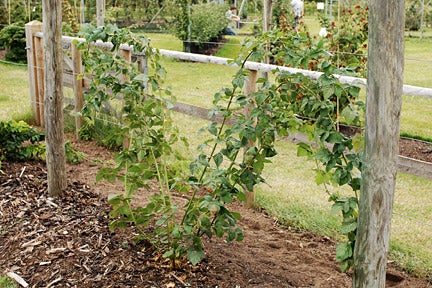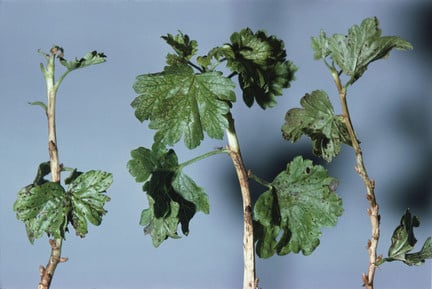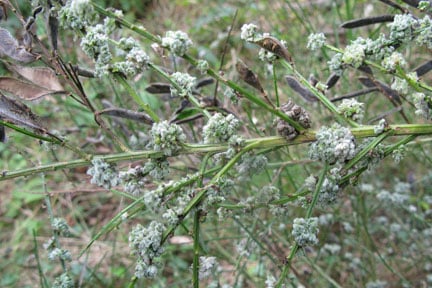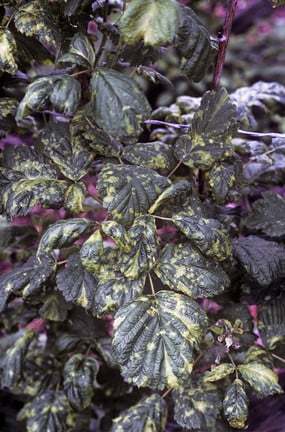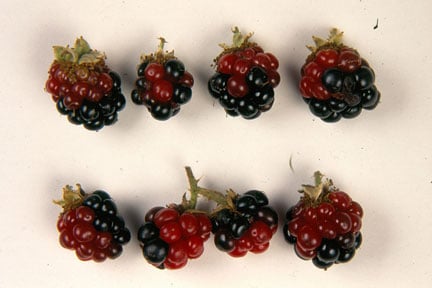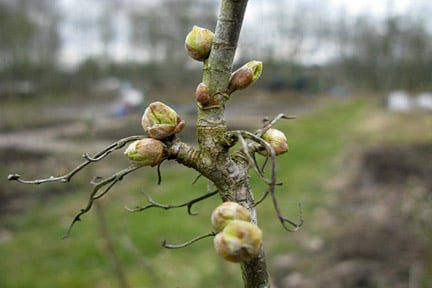
Quick facts
Common name - Blackcurrant big bud mite
Scientific name - Cecidophyopsis ribis
Plants affected - Blackcurrant
Main symptoms - Enlarged rounded buds in winter that fail to develop in spring
Most active - January-May
What is blackcurrant big bud mite?
Blackcurrant big mite is a gall mite in the family Eriophyidae, they are microscopic, about 0.25 mm in length. They live inside and suck from the embryonic leaves. Affected buds become abnormally swollen and rounded. The mite can also spread reversion disease.
Gall mites, also known as eriophyid mites, are minute animals usually less than 0.2 mm long when fully grown. They have elongate bodies and two pairs of legs, unlike other mites which have four pairs. Their size means they can usually only be seen with the aid of a microscope. Their presence is readily detected by the distinctive abnormal plant growths induced by their feeding activities.
There are many species of eriophyid mite which are usually host specific this means that each species of mite will only feed on a single, or several closely related, plant species.
Eriophyid mites feed by sucking sap but while doing so secrete chemicals into the plant tissue that convert some of the normal (parenchyma) plant cells to tissues which can give rise to a range of growth forms. These then grow to produce the gall. The mites can then suck sap from plant cells lining the gall structure, which are invariably more nutritious than unaffected tissue, but often do not cause serious damage to the plant.
Symptoms
- Symptoms of the mites are most easily seen in late winter, when affected become abnormally swollen and rounded
- Healthy buds are pointed and longer than broad
- Affected buds often dry up, producing no leaves in spring, or stunted foliage and few or no flowers
Management
- Affected plants can continue to crop well for several years and so some presence of the mite can be tolerated
- Dispose of heavily affected plants after the fruit has been picked and replant in autumn with clean new stock
- Purchase stock plants certified as free of big and reversion, these will have been inspected on the nursery and declared free of the mite
- One mite-resistant , ‘Ben Hope’, is available
- The affected of lightly affected plants can be picked off during the winter and disposed of away from blackcurrant plants
Biology
A single blackcurrant can host hundreds of mites, which feed by sucking from the embryonic leaves,
The mites emerge in early summer and crawl over the plant in search of new ; they can also be blown by the wind onto other blackcurrant plants. Aside from the enlarged buds, this mite can also transmit a virus-like mycoplasma disease known as reversion. This debilitates plants, resulting in reduced yields of fruit
